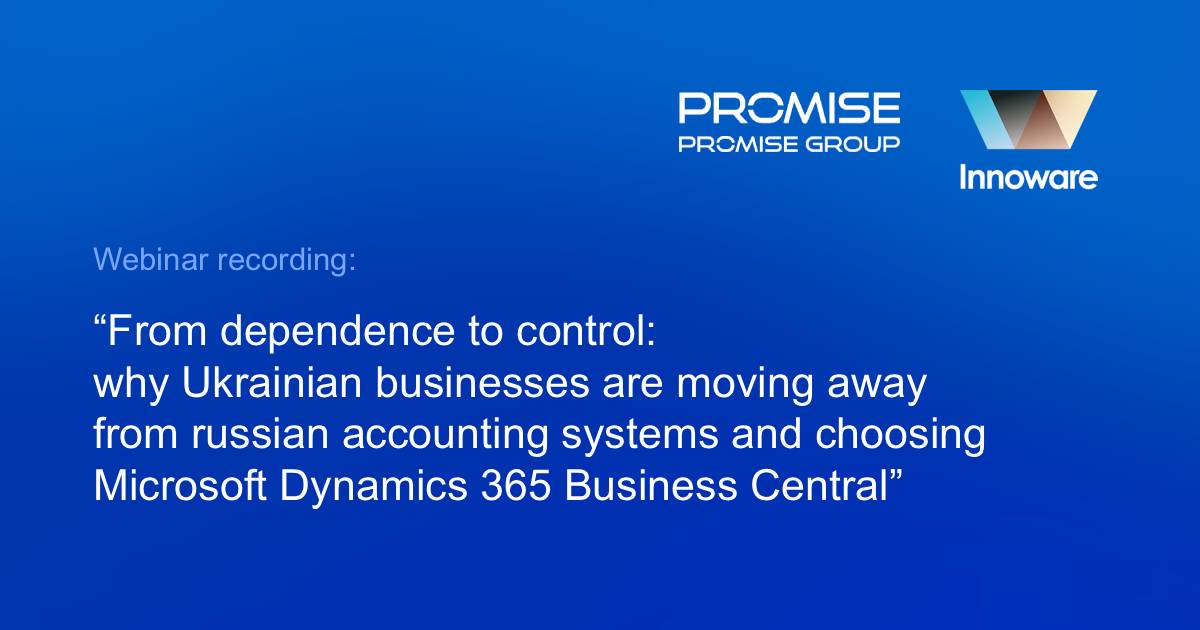
Economic losses to businesses due to the use of russian software: who pays?
In new article for the portal speka.media, Dmytro Popinako discusses how the use of russian software by Ukrainian companies not only poses potential cyber threats but also leads to significant economic losses.
Experts estimate that using accounting systems and other software solutions of russian origin can result in losses far exceeding the investments required to switch to reliable Western or Ukrainian systems. At the same time, the reality is that both Ukrainian businesses and society end up paying for these choices. But what is the scale of these losses and what can be done about it?
Hidden losses from cyber threats
According to the State Special Communications Service, the number of registered cyber incidents in Ukraine increased by 62.5% in 2023. These threats affected not only government structures and critical infrastructure but also commercial enterprises of various profiles. Likely, companies using russian-origin software, such as 1C, BAS, and other enterprise management systems, are more vulnerable to cyberattacks, as such products raise security concerns.
These systems are widely used in enterprises for accounting, tax reporting, and managing business processes, which makes them potentially dangerous due to the risk of accessing sensitive data. This can lead to business interruptions and significant financial losses, as continuity is crucial for-profit generation. When business processes are disrupted, revenue stops, and clients may flee due to fears of data breaches or loss.
Losses due to non-compliance with European standards
Another aspect of economic losses comes from the non-compliance of russian accounting systems with European Union requirements. For example, EU regulations on personal data protection (GDPR) impose strict standards for data processing. Companies that continue using russian software may face fines, restrictions, or legal problems when operating in the European market.
Analysts estimate that non-compliance with EU standards could cost Ukrainian businesses millions of dollars annually due to the loss of contracts, reduced opportunities for accessing international markets, and increased expenses for adapting business processes to new regulations. This is especially true for large exporters, who risk losing access to key markets.
Reputation losses
Reputation losses become a significant source of economic damage for Ukrainian businesses using russian ERP systems. The revelation of such cases creates a negative impression of the company among clients and partners, calling into question its reliability, data security, and responsibility in choosing software. This can lead to a loss of trust, fewer customers, and contract terminations with partners who want to avoid dealing with companies that may be vulnerable to cyberattacks. As a result, the business not only loses profits but also needs to invest substantial resources in rebuilding its reputation and trust in its brand.
Costs of replacing systems
Although abandoning russian accounting systems like BAS or 1C and migration to international alternatives (e.g., Microsoft Dynamics 365) requires certain investments, this can be considered a strategic decision to reduce future risks. Such an investment pays off through reduced cybersecurity risks, less dependence on russian suppliers, improved business process management, and the ability to scale the company.
For companies implementing ERP systems for the first time, it is better to choose secure, reliable, flexible, and modern solutions right away, rather than russian software. This decision will help avoid additional costs for data migration and prevent exposing the business to cybersecurity risks and sanctions.
Who pays?
As analysis shows, the cost of using russian software is borne not only by Ukrainian businesses but also by the entire economy of the country. Companies face high costs for recovery after cyber incidents, as well as the need to adapt their systems to meet international market requirements, which requires additional investment. In the long run, dangerous software undermines the competitiveness of Ukrainian companies, limits their ability to access global markets, and reduces growth potential. Ultimately, this affects the economic stability of the country and its ability to innovate.
Path to security and stability
A solution for Ukrainian companies may be a gradual transition to ERP systems that meet international security standards and offer higher data protection. Before the full-scale invasion of Ukraine, the general practice was to store data within local information environments, with each company trying to secure it independently. After February 2022, however, moving data to the cloud and outside territorial borders became part of planning for resilience and effective enterprise management, as the level of protection available to Ukrainian companies was insufficient to counter cyberattack threats, especially in the event of physical destruction.
As a result, using cloud products from global providers has gained popularity, as companies like Microsoft invest billions of dollars in building resilient data centers. The level of protection they provide is the best available because such investments are beyond the reach of “ordinary” companies. Additionally, some providers practice “redundancy” in their data centers, where databases are partially copied to other centers located in different parts of the world. This allows for quick recovery of information, even if an earthquake causes a data center to “sink.”
By migrating to modern systems, Ukrainian businesses will not only reduce risks but also gain confidence that their information systems are modern, reliable, and have competitive advantages in international markets by increasing technological capacity. While the cost of implementing new ERP solutions is high, the cost of dealing with the consequences of using russian systems is significantly higher – both for companies and for the entire Ukrainian economy.
Original article: Російське ПЗ vs. Західні ERP: Як уникнути кіберзагроз і економічних втрат
INNOWARE USA
501 Silverside Rd, Ste 105, # 4995,
Wilmington, Delaware, 19809-1376,
United States
Tel.: +1(302)4672024
E-mail: info@innoware.com
INNOWARE UAE
Premises 407-FZBA 055, 4th Floor, Sheikh Rashid Tower, Dubai World Trade Centre,
Dubai, United Arab Emirates
Tel.: +971588894591
E-mail: info@innoware.ae
INNOWARE UKRAINE
3, Sholudenka St., office 204 (Cubic BC)
Kyiv, Ukraine, 04116
Tel.: +380(44)4902220
E-mail: info@innoware.com


